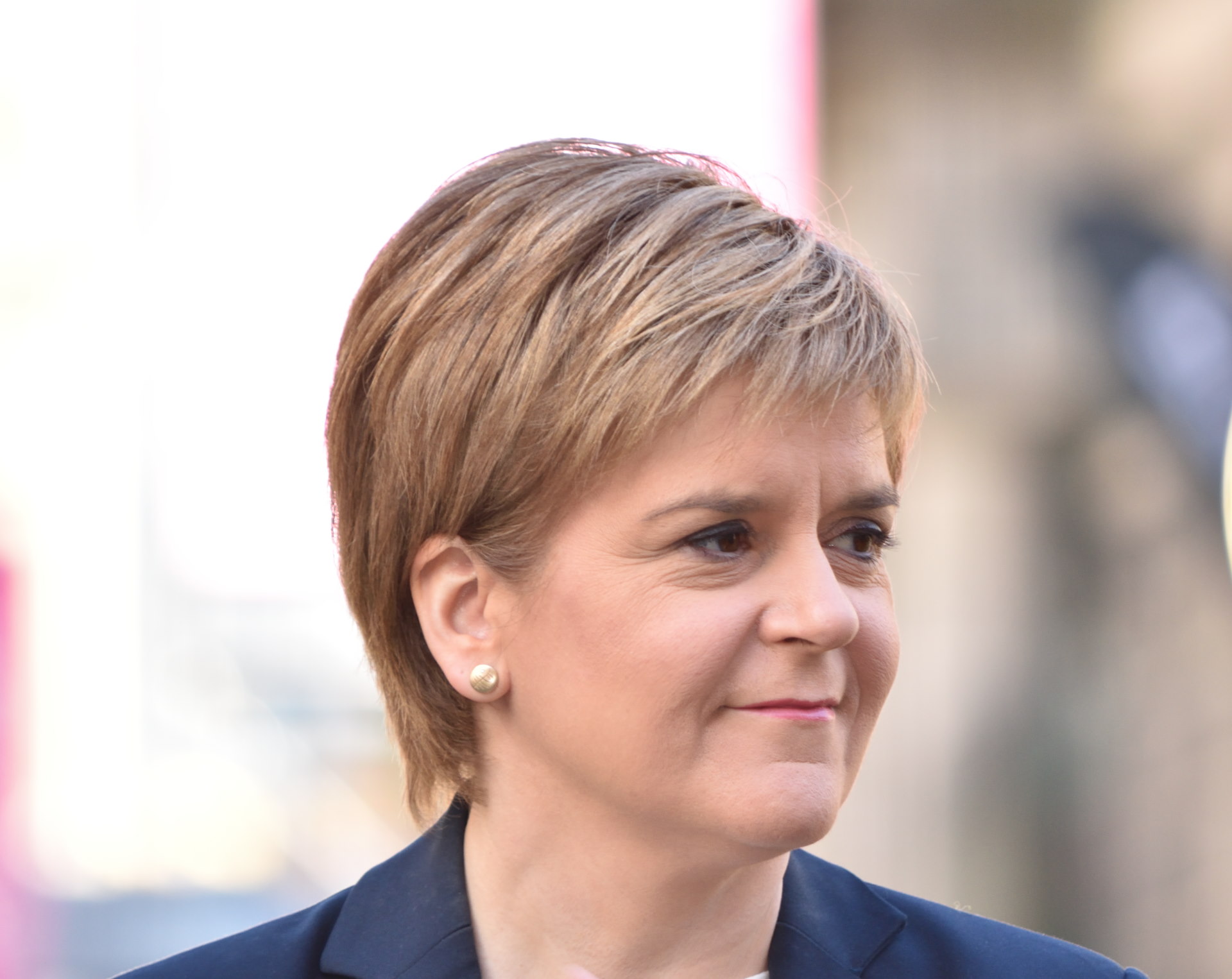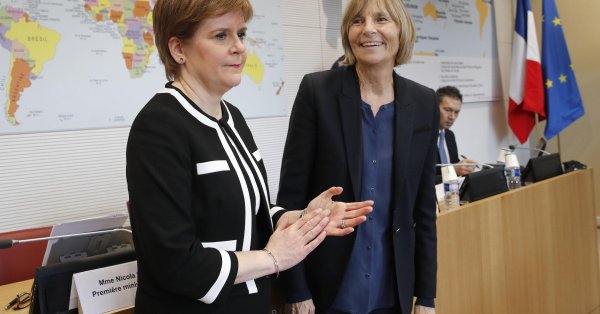Constitutional Relations Secretary Michael Russell, Scottish Parliament. (29/05/19)
Presiding Officer,
Much has happened since, the First Minister set out, in late April, the Scottish Government’s view of continued Brexit chaos and of the measures this Government must bring forward to protect the people of this country.
Last Thursday Scotland said, loudly and clearly, that it is a European nation and it intends to remain one.
It also rejected all attempts to deflect that argument and showed its contempt for equivocation.
Elections can be brutal judgements on parties and politicians.
But, Presiding Officer, elections can also be fresh starts.
So, if all the parties in this chamber are willing to hear the clear voice of Scotland, then I believe we can find a way to put behind us the divisions of Brexit and move forward together.
And that is what this statement is about.
On the 11th of April, when the EU threw the UK a lifeline to avoid a no deal Brexit, Donald Tusk, the President of the European Council said to Westminster “Please don’t waste this time”.
But he has been ignored.
The manifesto on which we won the Holyrood election in 2016 and on which this government is founded said the Scottish Parliament should have the right to hold another referendum “if there is a significant and material change in the circumstances that prevailed in 2014, such as Scotland being taken out of the EU against our will”.
Any “deal” which takes Scotland out of the EU against the wishes of the majority has that effect.
And if a new prime minister attempts a “no deal Brexit”, whilst we will do everything possible to stop it, and everything we can to mitigate it, it will be yet further proof that the conditions set out in our manifesto in April 2016 have been met in full and there will be an even greater urgency to give Scotland the choice of a different future.
The Scottish Government will of course continue to do all we can to stop Brexit for the whole UK. In particular, we will continue to support a second referendum on EU membership – a position which received widespread support on Thursday. But time is running out.
The third anniversary of the Brexit referendum will be with us in less than a month’s time. The accelerating shambles has caused and is causing real damage to Scotland’s economy, and to our social fabric.
The assumption that a UK Government and a UK Parliament would or could in any way do better for Scotland than our own independent institutions has been finally and completely destroyed.
Presiding Officer there must be – and there is – a better way forward.
That is, in our view, for Scotland to become an independent, European nation.
But as we seek that way forward, we must try and build as much consensus as we can.
One thing we have learnt from Brexit is this – there is a need for reconciliation and the bringing together of different views.
We must try to break the current logjam with the power of fresh ideas.
To do that we must approach our collective national future in a spirit of openness and acceptance that we all want the best for our country.
We must be mindful not just of those who won, but also those who lost – not just this week, nor even just in 2016 but in 2014 too.
It will not be easy, but at least we start on that process with a high degree of consensus about the basic fact – the Westminster system is broken and there is no mending of it in sight.
The First Minister said last month that we must reach out and be inclusive and our approach to the three tasks we are now taking forward has been, and is, just that.
So firstly, as context, I can confirm that, despite the chaos we witness in Whitehall, my colleagues and I will continue to attend intergovernmental meetings with UK and Wales (and hopefully soon Northern Ireland) counterparts.
The destination the Scottish Government wishes for this country is independence, but as we travel towards that, we have a role in helping to improve the structures under which we presently live and work.
In the past two years I have often quoted the terms of reference of the JMC (EN).
They have consistently and fundamentally been ignored by the UK Government.
There must be a new – meaningful – respect for our position and for the responsibilities which are ours as of right.
There needs to be a clear and urgent timetable for the current inter-governmental review, which must secure a legal underpinning to the relationship, and the UK Government must commit to respecting the legislative consent mechanism rather than ignoring it.
These matters will be discussed at the next JMC (EN) due before the end of June. We must see significant progress on them if those meetings are to have any future purpose.
Presiding Officer that is about the journey.
Let me now turn to the destination and the three areas of activity which the First Minister set out in her April statement.
Firstly, the Referendums (Scotland) Bill was introduced to the Parliament yesterday and has been published this morning.
This Bill will, it is hoped, have completed its Parliamentary progress by the end of this calendar year.
As the First Minister said in April, it is the intention of the Government to offer the people of Scotland a choice on independence later in this term of parliament.
Of course, should circumstances change we would have the option of seeking Parliament’s agreement to proceed on an accelerated timetable.
The Bill provides a legal framework for holding referendums on matters which are now or in future within the competence of the Scottish Parliament.
The rules it sets out are of the highest standards and will ensure that the results are widely and internationally accepted. It brings Scotland into line with the UK where there is already standing legislation for referenda through the Political Parties Elections and Referendums Act which Westminster passed in 2000.
As the First Minister indicated in her statement, we intend at a future date to negotiate with the UK Government for a section 30 order to put beyond doubt our competence to hold a referendum on independence.
When the framework is used in those, or any other circumstances, a separate vote at a future date will allow members to consider the specific topic and approve the question.
The proposed franchise will be based on that used for local government and Scottish Parliament elections, which includes EU citizens and 16 and 17 year-olds.
It will be updated to incorporate future extensions to the franchise. I have previously set out my intention to extend the franchise for Scottish Parliament and Local Government elections to all people legally resident in Scotland, whatever their nationality. Those proposals will be brought forward shortly.
Given the disastrous and shameful experience of many EU citizens last Thursday it is now obvious that this is the only way to secure the democratic rights of every citizen.
I look forward to working with other parties at all stages of the parliamentary process.
Secondly, on cross-party talks about the broken Westminster system and the future needs and direction of Scotland, I welcome the commitment from Labour and the Greens to explore what might be possible. I hope the other parties who have not yet responded will now confirm that they wish to do so.
I have suggested using an independent interlocutor who would talk to parties separately to gather views and create an agenda and format for these talks. This would take the pressure out of the process and allow better engagement without any hangover from past discussions.
I intend to start a first round next month and to build on that if the other parties are willing.
These talks are without preconditions, and I commit myself and the Scottish Government to constructive engagement in them.
I know that wider civic Scotland is keen to be involved and I will work with the parties to consider how that might be possible.
Finally, Presiding Officer we have made considerable progress with the creation of a Citizens’ Assembly.
Two weeks ago I visited Ireland where I met some of the key people responsible for the Constitutional Convention and the Citizens’ Assembly. I am meeting with a range of experts from this country and overseas in order to further inform our own planning.
There is already a lot of interest in, and enthusiasm for, the Citizens’ Assembly. I hope that all parties will welcome and become involved in the initiative, as was the case in Ireland.
In order to help members engage more, I have arranged for the Secretaries of the Irish initiatives to come to Scotland, on 19th June to speak to MSPs and others. This will include a briefing session to party leaders or their nominees.
At and after the meetings on the 19th of June I would want all parties to offer their thoughts and suggestions.
I hope to be able to announce an independent chair and the formation of an expert steering group in the coming weeks and to confirm the timetable and the process for formulating the precise issues for deliberation when we return in September.
We intend to hold the first session of the Assembly in the Autumn and to have all five or six sessions completed by next Spring.
Presiding Officer, in conclusion, as we take forward a range of activities based upon consensus and compromise we will be endeavouring to get away from the negativity and nastiness of the current Brexit process.
Scotland deserves – and this week has clearly demanded – better.
We must create a country in which we all feel we have gained something worth having, and where we all feel part of a shared national endeavour regardless of the particular side of the argument we come from.
That is the spirit which imbued the First Minster’s statement in April and which the Scottish Government is determined to carry forward.
I hope we can do so together.
That is the fresh start the people of Scotland have offered us.
We should all grasp it with both hands.
Article Source: https://news.gov.scot/speeches-and-briefings/ministerial-statement-next-steps-on-scotlands-future


